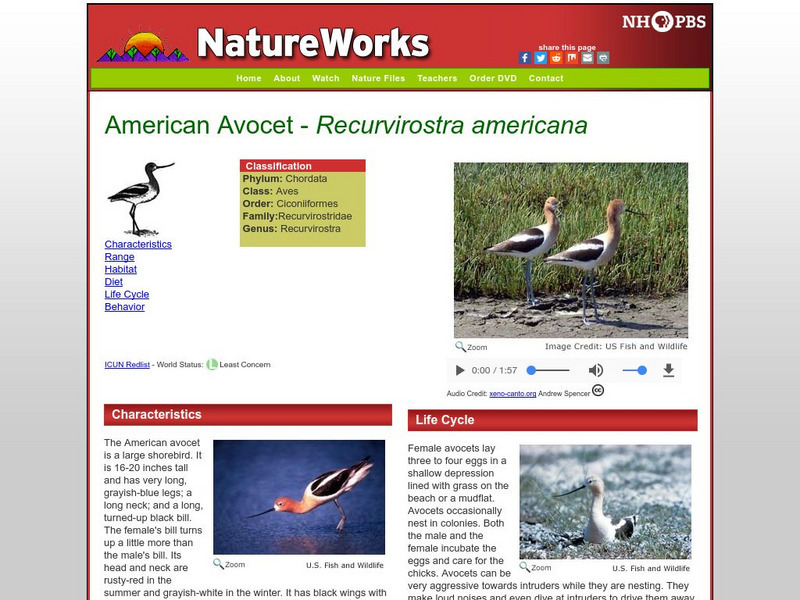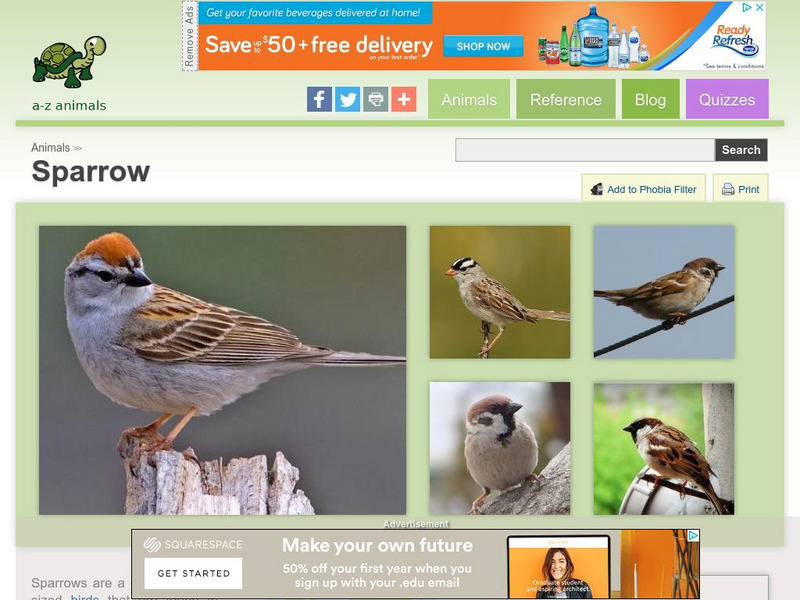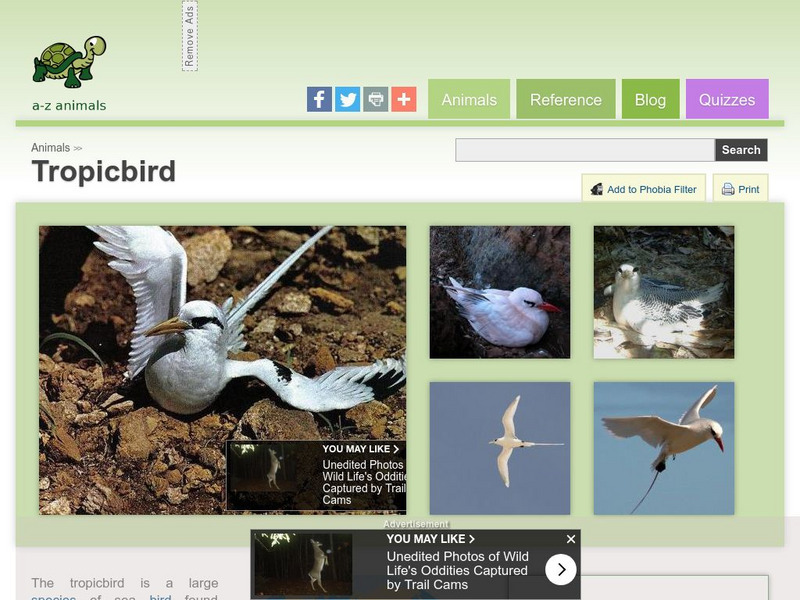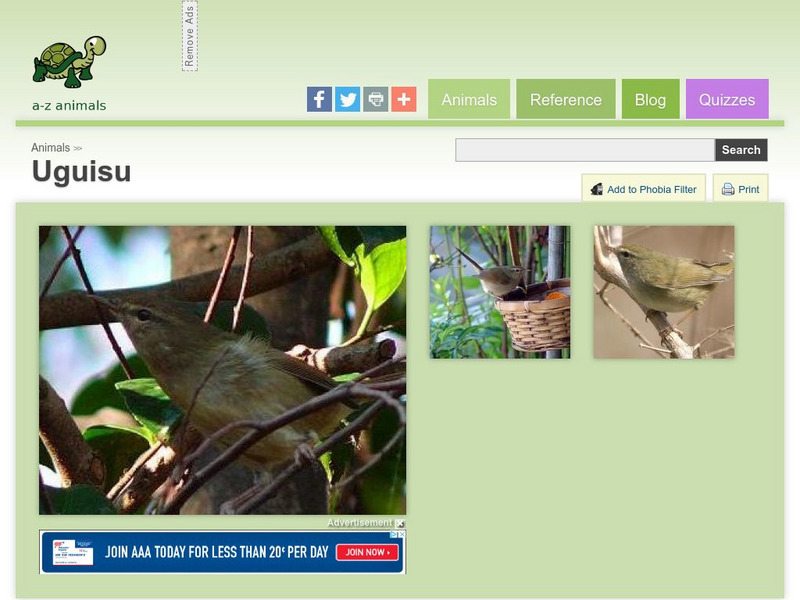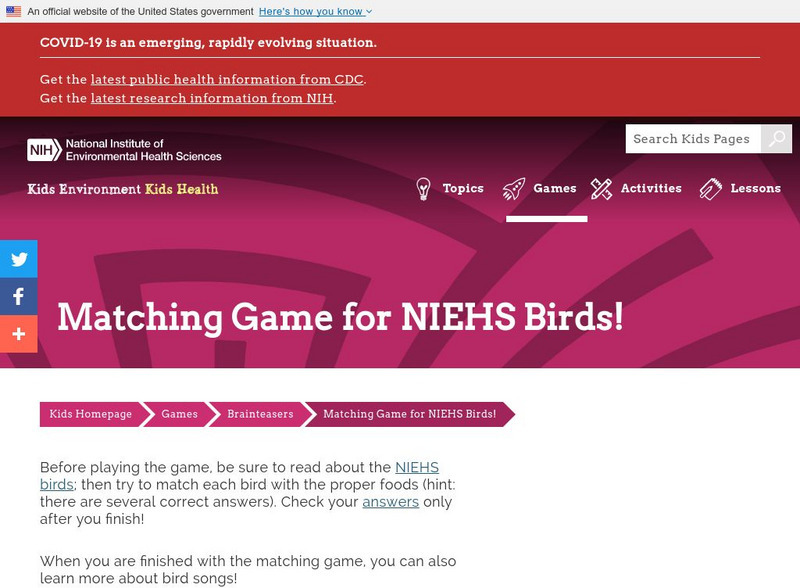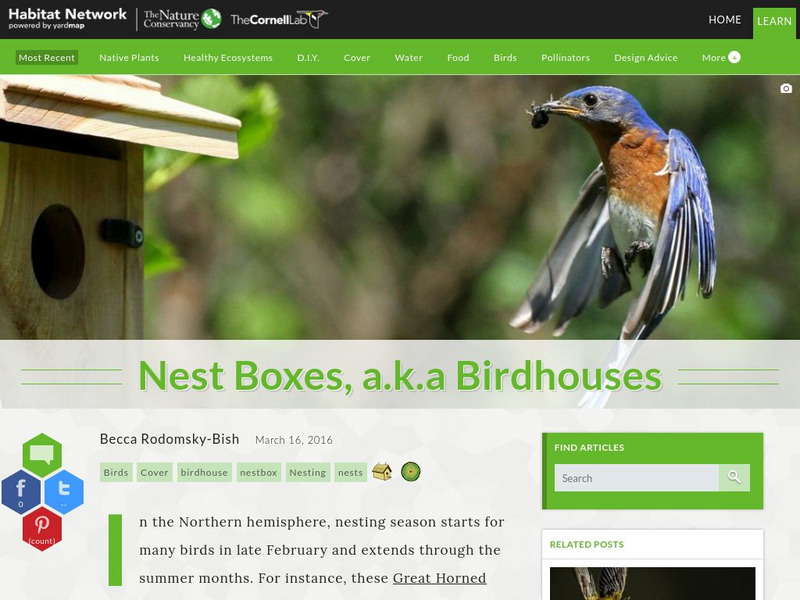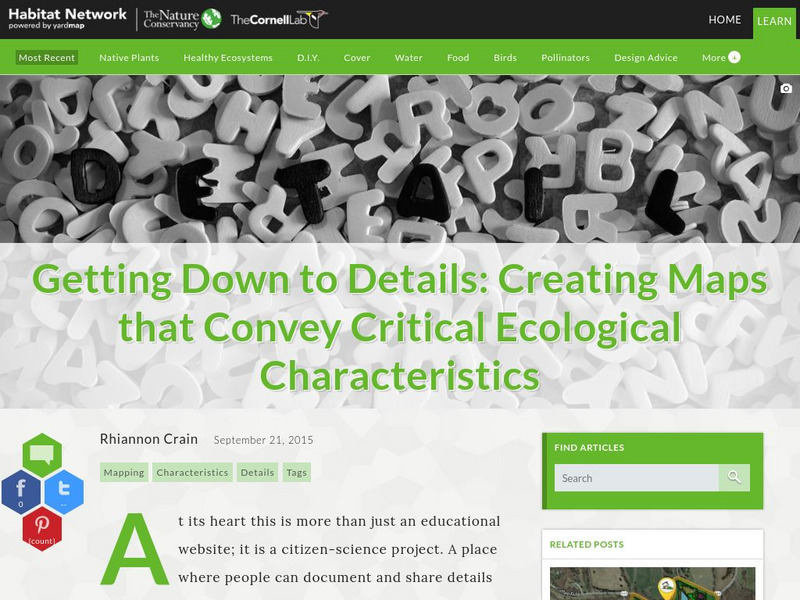PBS
Nh Pbs: Nature Works: American Avocet
Learn more about the American Avocet through this informative site. This resource features characteristics, reproduction, range, food, and behavior of this fascinating bird, as well as an audio clip of the bird's song.
Untamed Science
Untamed Science: Biodiversity: Animals: Chordates: Birds: Class Birds
Through video clips and pictures, explore the orders and a variety of species found in the Class Aves.
Australian Museum
Australian Museum: Birds of Sydney Harbour
This beautiful site from the Australian Museum touches upon the bird fauna of Sydney Harbour. You can learn about the changing habitats, how to identify birds and where to see them. There is also a list of the different birds that can be...
A-Z Animals
A Z Animals: Animal Facts: Birds of Paradise (Paradisaeidae)
Explore images and facts about Birds of Paradise, including details on their appearance, habitat, breeding, behavior, and much more.
A-Z Animals
A Z Animals: Animal Facts: Grouse (Tetraoninae)
This entry identifies the defining characteristics the Tetraoninae, more commonly known as the Grouse.
A-Z Animals
A Z Animals: Animal Facts: Guinea Fowl (Numididae)
This entry identifies the defining characteristics of the Numididae, more commonly known as the Guinea Fowl.
A-Z Animals
A Z Animals: Animal Facts: Sparrow (Passeridae)
This entry identifies the defining characteristics of the passeridae, more commonly known as the sparrow.
A-Z Animals
A Z Animals: Animal Facts: Toucan (Ramphastos Toco)
This entry identifies the defining characteristics of the ramphastos toco, more commonly known as the toucan.
A-Z Animals
A Z Animals: Animal Facts: Tropicbird (Phaethon)
This entry identifies the defining characteristics of the phaethon, more commonly known as the tropicbird.
A-Z Animals
A Z Animals: Animal Facts: Uguisu (Cettia Diphone)
This entry identifies the defining characteristics of the cettia diphone, otherwise known as the uguisu.
National Institutes of Health
National Institute of Health: Matching Game for Niehs Birds!
See if you can figure out what different birds eat. This interactive matching game explores the diets of 17 birds commonly found in the US.
Cornell Lab of Ornithology
Habitat Network: Ecological, Practical, Aesthetic Advantages of Wild Shorelines
Habitat Network examines what we know about the ecological functioning of shorelines, and makes recommendations for design, planting, and management of these specialized zones.
Cornell Lab of Ornithology
Habitat Network: Map Your Community
The Habitat network wants to show how mapping is a powerful way to connect you to your community.
Cornell Lab of Ornithology
Habitat Network: Be Healthier: A Goal for Your Site?
Learn about the many small steps people can take to improve one's health and the health of one's community.
Cornell Lab of Ornithology
Habitat Network: Investigations Into How to Prevent Deadly Bird Window Strikes
Act a community advocate to help commercial properties embrace best practices for decreasing bird-strikes on their large, heavily-glassed buildings.
Cornell Lab of Ornithology
Habitat Network: Brush Piles
Find out why brush piles are beneficial to a habitat.
Cornell Lab of Ornithology
Habitat Network: With Your Neighbors
Habitat Network challenges citizen scientists to organize their communities as a positive force for birds.
Cornell Lab of Ornithology
Habitat Network: Freedom to Move
See how neighborhoods are working together to have cumulative positive impacts for birds.
Cornell Lab of Ornithology
Habitat Network: Habitat Feature: Nesting Materials
Learn that of the best parts of providing habitat for birds in a yard is the possibility of being chosen as a nesting site.
Cornell Lab of Ornithology
Habitat Network: Nest Boxes, a.k.a Birdhouses
Learn about the importance of bird house boxes in backyard habitats.
Cornell Lab of Ornithology
Habitat Network: The Great Backyard Bird Count Group
Show off a local wonderful habitat by joining the Great-Backyard-Bird-Count group, and put the bird count data on your map.
Cornell Lab of Ornithology
Habitat Network: Adding Bird Sightings to Your Habitat Map
By mapping a local habitat, people are providing the Cornell Lab of Ornithology citizen science program with invaluable habitat information in regards to bird diversity.
Cornell Lab of Ornithology
Habitat Network: Four Mapping Mistakes That Affect Data Quality
Learn the tips and tricks of successful habitat mapping for this citizen science project.
Cornell Lab of Ornithology
Habitat Network: Creating Maps That Convey Critical Ecological Characteristics
Get to the heart of this citizen science project that invites citizens from all over the country to map and identify their habitat ecology.


